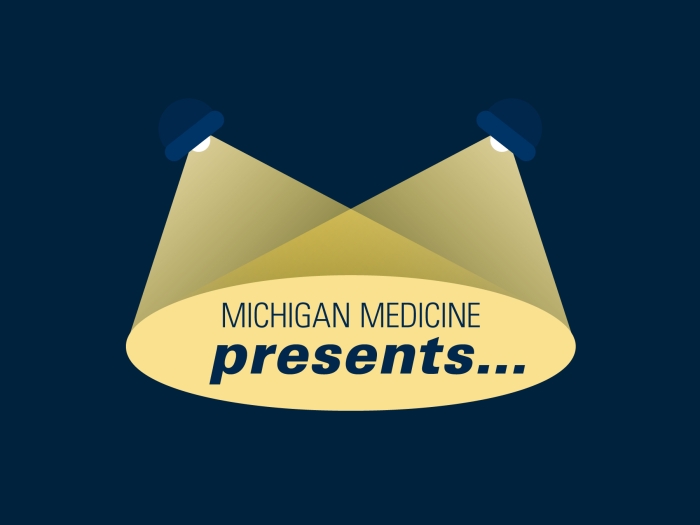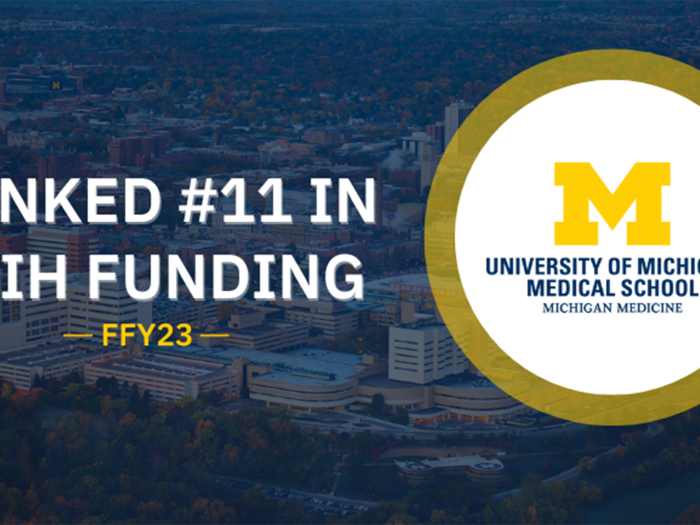12:10 PM
Author |
The annual event of residency matching offers big reveals
Moments ago, at the University of Michigan’s North Campus Research Complex, 151 University of Michigan medical students enthusiastically ripped open envelopes containing the contents of their futures: Match Day has officially arrived!
The event marks a momentous occasion in which graduating medical students learn where they have been accepted for residency training. Each envelope contains the name of the medical center its recipient will attend for specialized training in their future field of expertise.
“Match Day is an exciting rite of passage where Michigan Medicine feels intense pride,” said Debra Weinstein, M.D., executive vice dean for academic affairs at the University of Michigan Medical School and chief academic officer for Michigan Medicine. “We are proud of our graduating medical students, as well as our incoming house staff – from the U-M Medical School, across the United States and beyond. Individuals in both groups come with impressive past accomplishments, along with the talent and dedication to make an amazing impact in the future.”
This year, an astounding 96% of U-M Medical School students matched, while 35% of them will stay in Michigan for their first year of post-graduate training. Nearly 23% will continue their education at Michigan Medicine, U-M’s academic medical center.
In addition to Michigan, the top states in which graduating U-M Medical School students will complete their upcoming intern year include California, Connecticut, Illinois and Massachusetts.
“Match Day represents the culmination of years of hard work and dedication for our medical students, who today discover where the next phase of their journey in medicine will take them,” said Seetha Monrad, M.D., associate dean for medical student education at U-M Medical School. “It is a joy and a privilege to be with our students and their supporters on this momentous day.”
Here are several highlights about this year’s graduating class:
- Individuals from this year’s remarkable graduating class were selected from thousands of applicants nationwide throughout the Match Day process.
- 39 students will graduate with a medical degree from the U-M Medical School, as well as an advanced degree in another field from a top-ranked graduate program. These include master’s degrees in business administration, public health and science in clinical research, or Ph.D.’s as a part of the U-M Medical Scientist Training Program, or MSTP.
- Three students have completed both a medical degree and a residency program in Oral and Maxillofacial Surgery.
- 34% are entering fields that lead to primary care, which includes family medicine, general internal medicine and general pediatrics.
- The top five specialties for this year’s class include internal medicine, surgery, anesthesiology, family medicine and psychiatry.
“We are so incredibly proud of our 2023 graduates, particularly because the last few years have been incredibly challenging for both education and health care,” said Marschall Runge, M.D., Ph.D., dean of the U-M Medical School. “We are confident that our next generation of physicians and leaders will carry the spirit of Michigan to their next phase of training and excel in their new health care environments.”
For more about Match Day, please visit https://nrmp.org.
For more about Match Day at the U-M Medical School, please visit: https://michmed.org/gobluematch.

Department of Communication at Michigan Medicine
Want top health & research news weekly? Sign up for Health Lab’s newsletters today!





